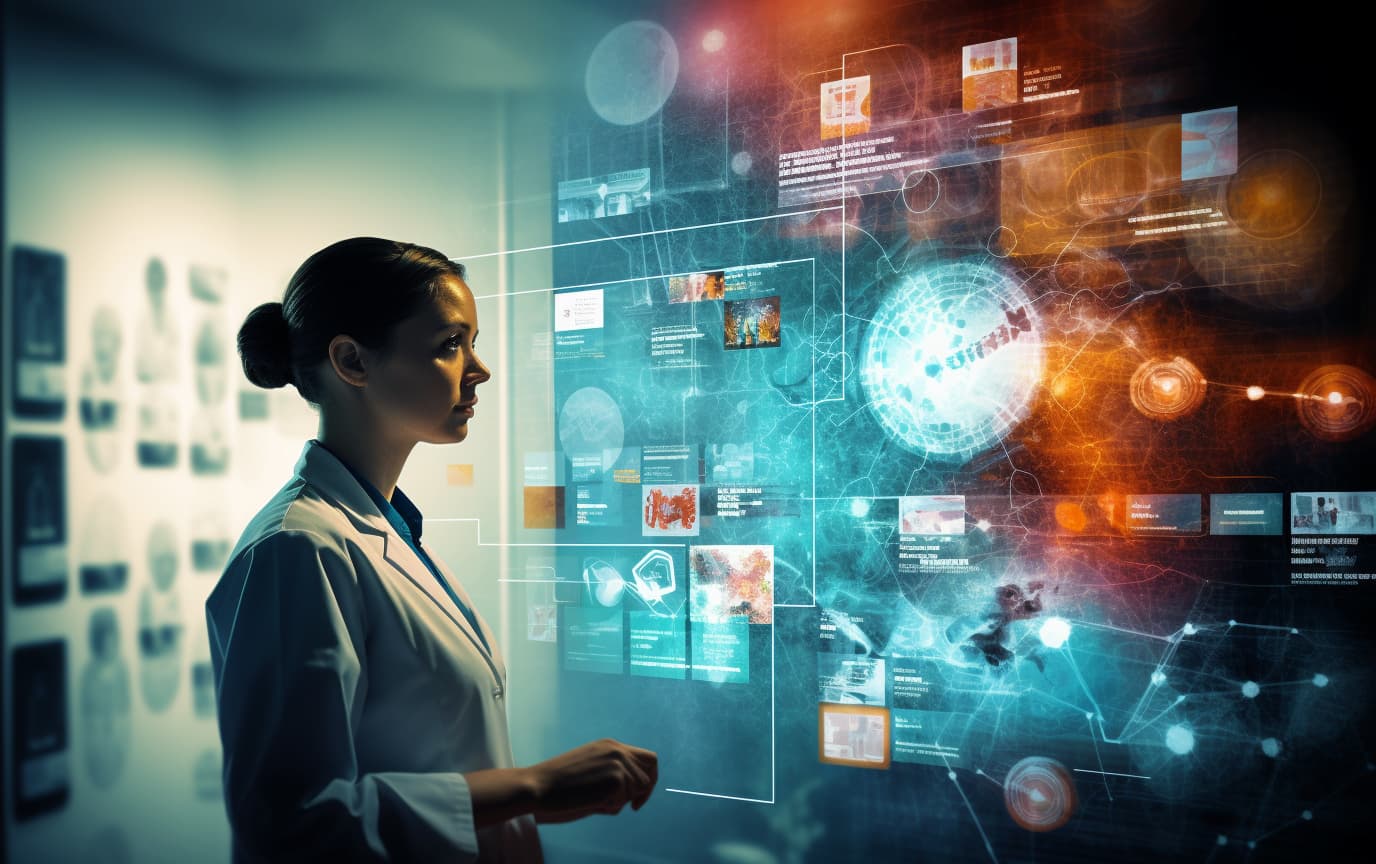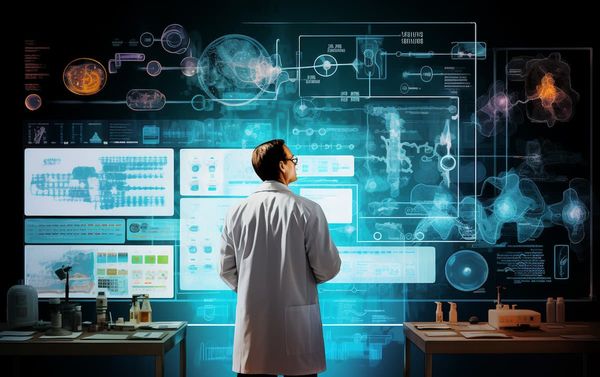The increased usage of generative AI and large language models (LLMs) has the potential to dramatically transform the healthcare industry in the coming years. Healthcare systems around the world are reaching their limitations, facing challenges like ageing populations, rising costs, staff shortages, and difficulties in providing inclusive care. AI offers innovative solutions to tackle these systemic issues in healthcare.
Enhancing Patient Care and Outcomes
A major application of AI in healthcare involves analyzing complex medical data to uncover insights that can improve patient diagnoses, treatment plans, and health outcomes. AI algorithms can detect patterns and correlations in patient data that human clinicians may miss. This allows for earlier disease detection, more accurate diagnoses, and the ability to develop optimized, personalized care plans tailored to each patient’s needs.
Additionally, AI chatbots and virtual assistants can make healthcare more accessible and affordable. These tools can provide initial patient screening, assist with booking appointments, answer common health questions, monitor patient recovery, and more. This expands access to healthcare knowledge while reducing costs.
Optimizing Healthcare Operations
AI has the power to greatly enhance healthcare operations and workflows. It can analyze electronic health records, insurance claims data, and radiology scans to flag mistakes, reduce errors, streamline administration, and prevent issues like duplicate testing.
AI can also optimize day-to-day tasks like scheduling and resource allocation. For instance, algorithms can identify optimal nurse-to-patient ratios or predict future bed occupancy rates. This allows hospitals and clinics to manage staff and resources more efficiently.
Democratizing Healthcare Access
One of the most transformative applications of AI in healthcare involves expanding access to underserved communities. In regions with few doctors per capita, AI diagnostic tools and virtual health assistants administered through mobile devices can provide basic care and triage to millions who previously lacked access.
Computer vision algorithms can also analyze medical scans and tests in order to detect abnormalities and prioritize which patients require the most urgent care from medical professionals. This allows doctors in low-resource settings to focus their efforts where they are most needed.
But it's more than just access; it's about quality. By integrating AI into healthcare systems, there is potential for:
- Better Triage and Referral Systems: Instantly analyzing patient symptoms, AI could guide them to the right care level, whether it's a local clinic, specialized hospital, or home care.
- Supportive Diagnostics: Aiding healthcare professionals in diagnosing diseases by analyzing patterns far too intricate for the human eye to discern.
- Smarter Screening: Especially for rare events, AI could spot anomalies faster, potentially saving lives.
- Medication Oversight: With many patients on multiple medications, AI could identify potentially dangerous interactions or errors.
Moving Forward Responsibly
While AI has immense potential to improve healthcare, its development and application must be guided by ethical principles. Steps must be taken to ensure AI algorithms are free from bias and do not perpetuate inequities. Healthcare AI should augment human capabilities, not replace them entirely. Regulation and oversight will be key to developing healthcare AI responsibly and earning public trust.
If designed and governed properly, AI can make healthcare more predictive, preventive, personalized and participatory. It promises to enhance medical knowledge, expand access to care, improve patient outcomes, and revolutionize how healthcare is delivered. However, realizing this transformative potential will require cross-sector collaboration and a commitment to developing AI for social good.








